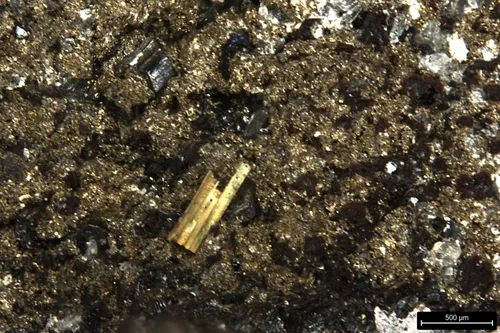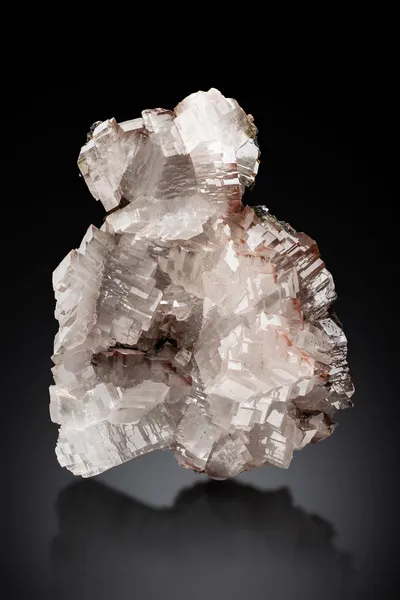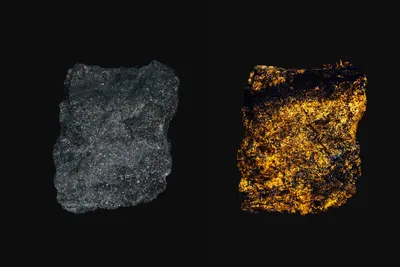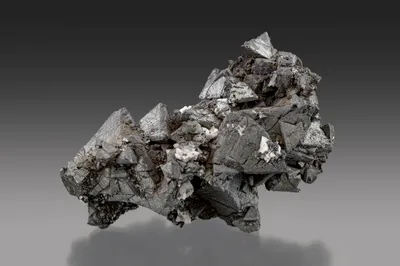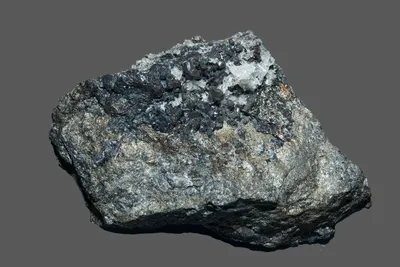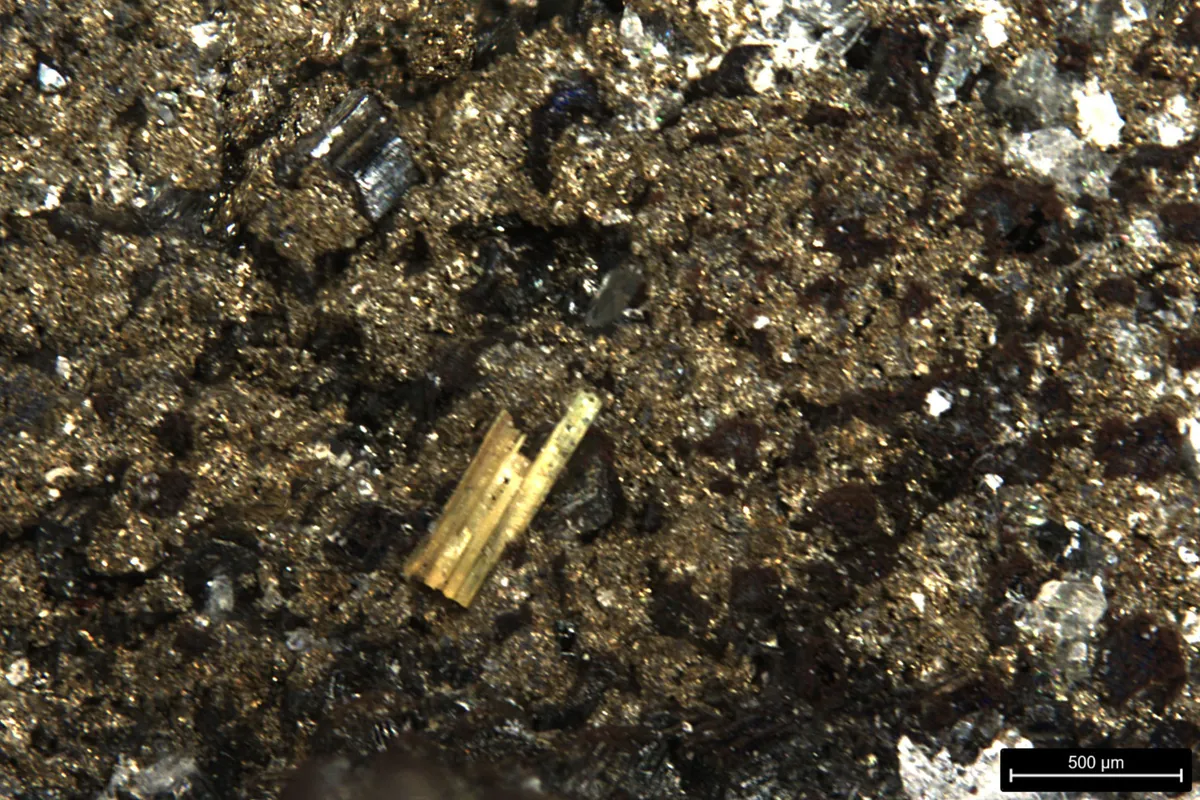
Image Credit: Malcolm Southwood
Mineral Species
Rutile
Type Locality
No
Composition
TiO2
Crystal System
Tetragonal
Status at Tsumeb
Confirmed
Abundance
Somewhat rare
Distribution
Third oxidation zone (?); sulphide ores (?); country rocks (feldspathic sandstone)
Paragenesis
Rock-forming (detrital); hypogene (?)
Entry Number
Species; TSNB306
General Notes
Rutile is encountered as a rare accessory mineral in the hypogene mineralisation, where it is generally observable only in polished section (Geier 1973/74). Very rarely, discrete orange-brown prismatic crystals (to 2 mm) have been observed in tennantite-sphalerite ore (Joy Désor, pers. comm. to M. Southwood, February 2017).
A specimen in the Feinglos Collection at Harvard University (MGMH 2022.4.6362L) comprises a massive sulphide matrix with a 40 mm vug containing quartz crystals (to 4 mm), chalcocite crystals (to 4 mm) and pyrite microcrystals. Resting on the pyrite are sparse, straw-yellow, slender prismatic crystals (to 500 μm), striated and with pinacoidal terminations. XRD analysis of these crystals by Andy Roberts at the Geological Survey of Canada indicated that they are probably rutile, although compositional analysis is required for confirmation. The specimen is attributed to 44 Level in the third oxidation zone.
Rutile also occurs as detrital grains in the feldspathic sandstone bodies, derived from the Tschudi Formation. Lombaard et al. (1986) described the abundance of rutile as "… sparse… widely distributed in small amounts".
Associated Minerals
albite; almandine; biotite series; calcite; clinochlore; epidote; fluorapatite; graphite; germanite; ilmenite; magnetite; microcline; montmorillonite; muscovite; orthoclase; pyrite; quartz; sphalerite; tennantite-(Zn); titanite; tourmaline supergroup; zircon
